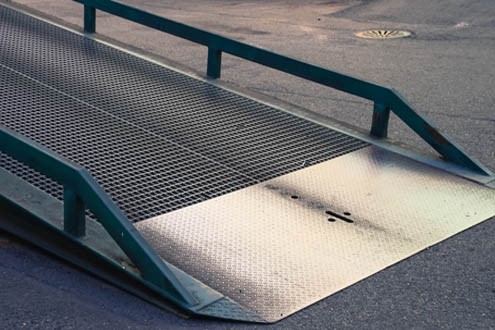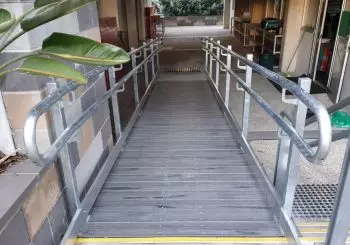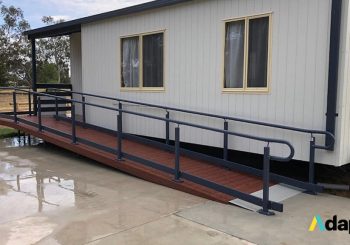Wheelchair ramps are installed to provide assistance to those using wheelchairs or other mobility devices.
They are built to ensure safe movement on uneven ground. Here are a few aspects to consider before constructing a wheelchair ramp:
1. Load-Bearing Capacity – Standard or Bariatric
If the wheelchair ramp exceeds its weight capacity, it can result in structural failure. This makes it crucial to calculate the precise weight that you want the ramp to support. It should include the weight of the mobility equipment, shopping baskets, power packs, and supplementary medical devices.
Most ramps are specifically designed to support roughly 150 kg, which includes the user as well as additional equipment. Bariatric ramps, on the other hand, can easily support up to 400 kgs.
2. Cost – Economy or Premium
Ramps built from aluminium are the lightest and extremely easy to move. Wooden ramps, however, are visually appealing, less expensive, and relatively easy to set up. High-quality ramps are often constructed using steel, concrete, aluminium, or wood. The surface of the wheelchair ramp is usually based on the user’s preference. Another aspect to consider while having a ramp installed is its geographic location. Galvanised steel ramps with open grid work patterns are ideal if you live in areas that see snowfall or rain.
3. Portability – Fixed Design or Portable
Wheelchair ramps are either built for permanent use or for portable purposes. In most cases, wheelchair users often opt for both. Portable ramps are perfect for those who wish to carry their ramps for family visits, running errands, or during road trips. These portable ramps can easily be folded and stored in the back of a vehicle. The set-up for these ramps includes extending it and placing it firmly between a high point like a curb and the ground.
Fixed ramps, on the contrary, are permanent installations that are placed outside a house or a commercial establishment. They connect the doorways to sidewalks or other outdoor surfaces. Most ramps are also designed explicitly with 180-degree switchbacks to ensure a smoother slope.
4. Placement – Home, Vehicle or Business
The versatile nature of wheelchair ramps makes them perfect installations for various settings, both outdoors and indoors. They are also ideal for spaces without slopes.
For those who wish to have a portable ramp installed for their vehicle, it’s crucial to measure the width of the door. See to it that you only select the ramp after keeping the door’s dimensions in mind.
5. Installation – DIY or Professional
Consumers either choose to have their wheelchair ramps installed by skilled professionals, or consider a DIY installation. Self-installation is probably an excellent idea for those who have experience in carpentry, or who have the time to ensure the ramp meets the necessary slope requirements. Consumers who require portable ramps can consider installing it themselves if they’re confident that they can complete the task.
However, for those who are purchasing a ramp that connects to a visible place of their property’s exterior, seeking professional help might be a good idea. The professionals will also make sure the wheelchair ramp meets DDA guidelines.
Here Are Few Of The Most Popular Wheelchair Ramps:
- Folding Ramps – These ramps are portable, lightweight, and exceedingly durable. They are often built using aerospace aluminium and can be customised based on the user’s preference. Usually sold in increments of one-foot, they can also be trimmed down to the length you desire.
- Multi-Fold Ramps – Weighing less than 25 kgs, multi-fold ramps can easily support up to 400 kgs. They include welded joints rather than riveted ones, and a centre joint hinge for additional support.
- Steel Modular Ramps – These DDA compliant ramps are highly versatile. They can be used for commercial as well as residential settings. They are either fixed or portable, have alterable legs and are often designed with a quick-dry platform system.
Adapta wheelchair ramps are made from Colorbond steel and are available in a variety of layouts, colours, and configurations. We can help you pick the type of ramp that would be best-suited to your needs and budget. You can call 1800 232 782 or contact Adapta through this form, and one of our representatives will contact you shortly.



